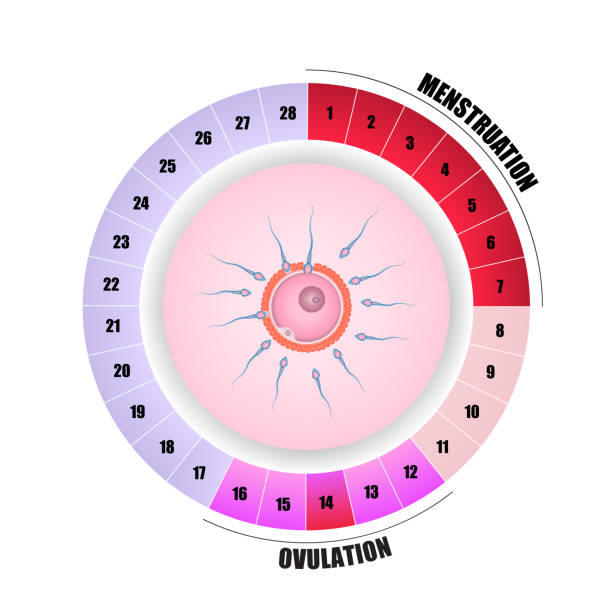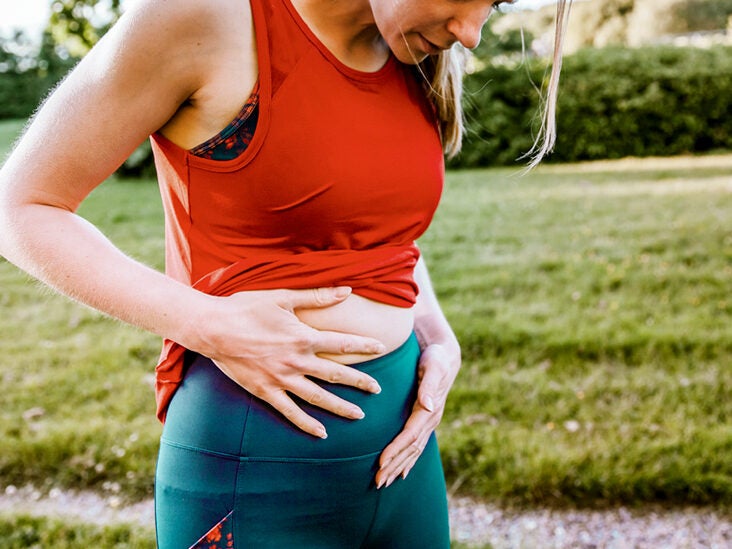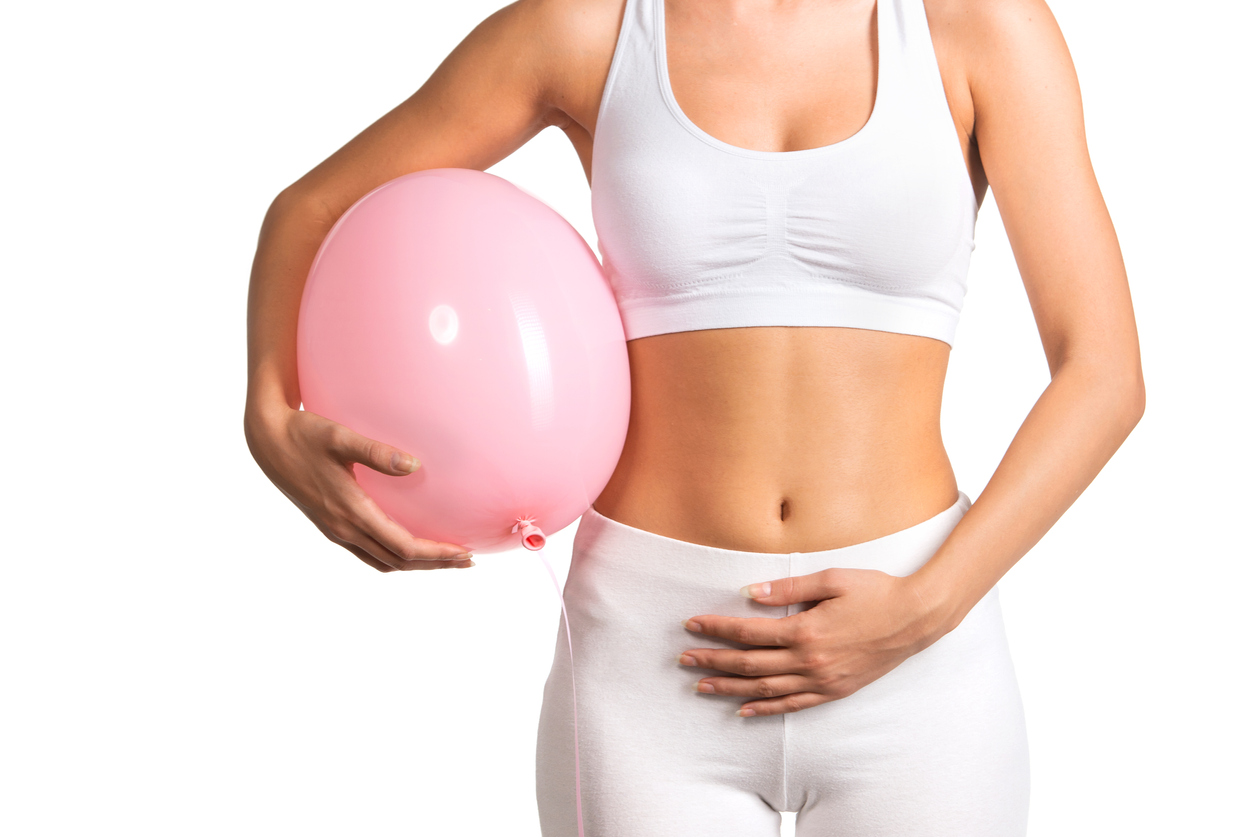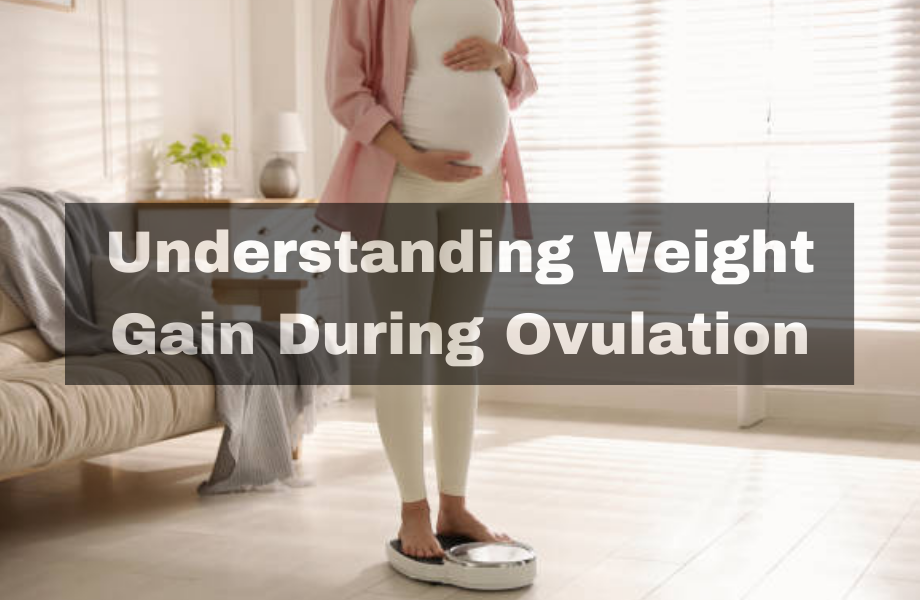For most of us, once a month, we start feeling all sorts of aches and pains and out-of-body experiences. Your boobs may hurt. You may feel extra grouchy. And it would be incredibly common if you felt yourself tearing up at things you normally wouldn’t. And just before all that starts to happen, we may feel a little, or a lot, bloated.
Ovulation bloating is a real thing that causes weight gain for a variety of reasons. Don’t feel bad if this is something you are unfamiliar with because we don’t really get taught it during school.
We are here to help.
What is Ovulation?

Some women in their 20s and 30s are more familiar with ovulation because it directly correlates to your chances of getting pregnant. Ovulation is when our ovaries release mature eggs during our cycle, and it travels down the fallopian tube.
The egg can stay in the area in which it can be fertilized with sperm for 12-24 hours. Sperm, on the other hand, can stay inside a woman’s body for 5-7 days after intercourse. This is why you have a much higher risk of getting pregnant when you are ovulating.
Ovulation typically occurs about halfway between your periods. It’s more proper to say day 14 of your 28-day menstrual cycle but this can give or take a few days because some women’s menstrual cycles end up being slightly longer or shorter. (1) This is why some women use a menstrual calendar because it is easier to keep track of personal timing.
Signs You are Ovulating

So, how do we know we are ovulating? If you aren’t great at keeping track of your personal menstrual cycle, there are a number of different signs you can pay attention to.
- You are approaching ovulation if you start to notice more egg-white-like cervical mucus. This is because your body starts to ramp up estrogen, causing a change in mucus. You can test for this by inserting a clean finger into your vagina. Take it out and touch your thumb and finger together. If you notice stretchy, sticky mucus, that is a sign of ovulation.
- Some women report having a more sensitive smell and taste. Not all women experience this.
- Getting sore boobs can be a sign right before you ovulate or right after. It is dependent on the woman. The reason for this is that you have hormones ramping up and exiting your body at an incredibly fast rate which causes the breasts to enlarge and reduce quickly.
- Some women also experience sharp or dull pain on one side of their lower abdomen or pelvic floor. This is because they are likely feeling the egg being released. It may last a few minutes but can also last a few hours. You will never feel the same pain on both sides at the same time.
- It’s possible to have light spotting before ovulating. This can look different for women, but it is typically a small bit of brown discharge when you go to the bathroom. Some light spotting doesn’t make it out of the cervix, so it dries and comes out when you pee.
- You may notice a change in your sex drive. Many women report feeling their libido increased during this time.
- Something less noticeable is the changes your cervix will experience. It is likely your cervix will be higher and softer. In general, it opens up because your body is preparing for “pregnancy” even if you are not.
- Nasua and headaches are common side effects during ovulation for women.
- Basal body temperature for women rises during ovulation. Basal body temperature means your resting body temperature.
Ovulation Bloating and Weight Gain

We mentioned that our hormones surge when we start to ovulate. The two hormones responsible for bloating are estrogen and the luteinizing hormone. They can cause a whole range of issues or responses. Let’s take a look.
Why am I feeling bloated during a certain time of the month?
When ovulation starts to occur, estrogen and luteinizing hormones cause gastrointestinal tract issues, swelling, and water retention. This ultimately makes us feel puffy in our belly and all over.
You also may experience appetitive changes and start to overeat. This is common and becomes an actual weight gain fluctuation just because we are trying to settle our hormones that are seemingly out of whack.
How long does ovulation last?

How long your ovulation last will be different from how long your bloating last. Some women are naturally affected more or less by the bloating during this time. Ovulation normally lasts once a month for roughly 24 hours (2).
Bloating is different and can last hours to days, depending on a multitude of different variables. A woman could be dealing with food sensitivities on top of ovulation and menstrual cycles, which would complicate the issue.
Keep in mind that if you find yourself being severely bloated for more than 1-2 days, it may be worth talking to your doctor or a nutritionist to see if there are any alternative or underlying medical issues that may cause you’re bloating beyond ovulation.
IBS, or irritable bowel syndrome, can sometimes both be a cause and an effect of a woman’s menstrual cycle. You can either have constipation or diarrhea (sometimes both at different times). If you experience this for extended periods of time, consult a doctor.
Tips for Managing Bloating During Ovulation

Bloating not only doesn’t make us feel like we look great, but it also physically doesn’t make us feel great. That’s why there are a number of tips you can use to help ease the pain and manage it. Let’s chat about it.
- Some people think that avoiding water is key to not feeling waterlogged. However, it is just the opposite. Drinking lots of water can keep you hydrated and avoids constipation. Constipation leads to more bloating. It helps with all gastrointestinal issues as well.
- Getting waterlogged actually results from water retention when you have too much salt. Salt and sodium sneak into all of our processed foods, so minimizing this can make a major impact on your bloating.
- Taking a magnesium supplement helps with a variety of things. Often people take magnesium for weight loss, but it also helps regulate blood sugar levels. It also helps with energy production and chain chemical reactions that help produce certain body functions.
- Exercise helps not only with weight maintenance and loss but also with bloating. Physical movement helps move around the gas in your body and get it out. It also helps strengthen your abnormal muscles.
- Some women find a hot pack or a heating pad placed on their stomachs or on their back can help relieve tension and pain when they are experiencing gas and cramping.
It’s Natural
While we certainly can do things to combat our bloating during ovulation, it’s important to understand the main concept. It’s natural, and it happens to most, if not all, women at some point in their life. Ovulation is quick compared to our actual periods, which may last a few days to a week. Often ovulation and bloating symptoms that last can sometimes feel like they bleed right into our period, which is why it can be a real pain for women.
That’s why being proactive to exercise, drinking lots of water, and eating healthy foods that don’t aggravate your gastrointestinal tract can be very helpful during this time. It’s also incredibly helpful to use menstrual charts and apps to track your cycle so that you can get ahead of the game.
References
- https://www.mayoclinic.org/healthy-lifestyle/getting-pregnant/expert-answers/ovulation-signs/faq-20058000#:~:text=Ovulation%20is%20the%20process%20in,where%20it%20can%20be%20fertilized.







